Should you get a wireless or wired keyboard? It all depends on what tasks you typically perform with a keyboard. Are you a competitive gamer? A traveler? A student? It really comes down to what you usually use your keyboard for and with all the companies out there making new innovations in the tech accessory industry, pumping out new product after new product, year after year… It’s easy to get lost in the mix and really don’t understand what device suits you and your needs.
Fortunately, we’re here to key you into the ins and outs of both wireless and wired keyboards so you can make an informed decision.
How does Wireless Keyboard Work?
Wireless keyboards work just like regular keyboards, but rather than transferring the data inputted into the keyboard via a wire, they do so by either a Bluetooth or 2.4GHz RF connection. For the Bluetooth varieties, simply connect to the keyboard via your Bluetooth settings. In the case of RF wireless keyboards, a 2.4 GHz dongle needs to be inserted into the device (desktop computer, laptop, TV, etc.). The 2.4 GHz dongle will receive the data typed into the keyboard via infrared beams and will transfer this data to the device.
Differences Between Wireless Keyboard and Wired Keyboard
|
Wireless Keyboards |
Wired Keyboards |
|
Can be used at range |
Need to be used at a close distance to the device |
|
Data transferred via infrared beams /Bluetooth |
Data transferred via physical wire connection |
|
Average price = $49.99 |
Average price = $19.99 |
|
Noticeable input lag possible |
No noticeable input lag |
|
Signal interference rare |
Signal interference not possible |
|
Requires charging/battery replacement |
Does not need charging/battery replacement |
Wireless keyboards are connected to your device by Bluetooth or 2.4 GHz RF and require charging or battery replacement. They offer a cleaner work or entertainment setup and also allow you to operate your keyboard from afar; whether it’s from your sofa, bed, or office chair. However, wireless keyboards can have lag input issues which can be annoying and definitely not ideal for gaming.
Wired keyboards will provide a lag-free input experience and do not need to be charged. They are usually the much cheaper option but lack the convenience of a wireless keyboard in that they cannot be used at range and their wire that connects to the device can potentially add to desk clutter.
Wired Keyboard Advantages and Disadvantages
|
Advantages |
Disadvantages |
|
No lag input or signal interference |
Wire can cause clutter |
|
No batteries required |
Wire can be vulnerable to damage |
|
Usually cheaper than wireless keyboards |
Length can limit workspace/gaming functionality |
Wireless Keyboard Advantages and Disadvantages
|
Advantages |
Disadvantages |
|
Can be used at a distance |
Needs to be charged or have batteries replaced |
|
No wire to deal with |
Can be subject to input lag or signal interference |
|
Aesthetically superior |
The more expensive option |
Wireless Keyboard vs. Wired Keyboard: Input Lag
One of the drawbacks of using a wireless keyboard is that you can encounter input lag. Input lag is when there is a delay between when you type something on the keyboard and the computer’s reaction to the command.
Switchandclick conducted a test to determine the difference in input delay times between wired and wireless keyboards. To ensure the accuracy of the test, they performed multiple tests with the same keyboard (Keychron K6) that has both wireless and wired capabilities. In the end, they found that a wireless keyboard takes 0.079 seconds longer to register data on the screen than wired keyboards. So how does this delay affect the user experience?
- Gaming
For games that require rapid sensory information and prompt reaction, like Elden Ring, Counter-Strike: Global Offensive, and even classic Tetris, you should avoid using a wireless keyboard. You will feel a very noticeable difference in how slow the reaction is between control inputs which will probably make you rage-quit more than ever before. So, when it comes to more fast-paced and competitive games, it is recommended that you use a wired keyboard.
On the flip side, wireless keyboards are totally viable for more chilled-out and turn-based games, like the Total War series, Civilization series, or Kingdom Crusaders series because those types of games don’t require quick reflexes and responses and the important input comes from clicking the mouse.
- Work
For typical work done on the computer, like emailing, typing up documents, creating spreadsheets, etc. wireless keyboards work just fine. You may initially notice some delay when typing but it’s not overly jarring and you will get used to it very quickly. There are also way more wireless keyboards than wired keyboard options for tablets and laptops, so you’re more likely to find something that’s comfortable and convenient for your personal tastes.
The reason why there can be a bit of input delay with wireless keyboards is simply that RF and Bluetooth Technology aren’t quite up to speed yet, so to speak. That said, if you think that your input delay is overly jarring like it’s fundamentally affecting functionality, then the problem could actually be associated with signal interference.
Wireless Keyboard vs. Wired Keyboard: Signal Interference
In your research for wireless keyboards, you might come across warnings about wireless keyboards being subject to signal interference. Signal interference causes input lag or total unresponsiveness and occurs very rarely. There are a few reasons why it can happen and they are all very easy to troubleshoot.
Here are three common causes and solutions for wireless keyboard interference:
- Too many portable devices operating on 2.4 GHz RF in too close of proximity. Solution: disable or remove other devices from the immediate area.
- Wireless keyboard is positioned too far away from the receiver. Solution: Simply get a little closer to the device to which the 2.4 GHz dongle is connected.
- Interference caused by USB 3.0 devices and removable media such as external hard drives. Solution: plug the wireless keyboard dongle into the USB 2.0 ports of your device.
It goes without saying, but you don’t need to worry about signal interference whatsoever with wired keyboards as they do not put out any signals.
Wireless Keyboard Power Usage
The fact that you need to charge or replace the batteries on a wireless keyboard is kind of a bummer, but take this drawback with a pinch of salt. Wireless keyboards actually have exceptional power usage efficiency and typically only need to be charged or have batteries replaced every 6 months when used with consistent regularity.
Which Is Better: Wireless Keyboard or Wired Keyboard?
A wireless keyboard is better than a wired keyboard, so long as it’s of good brand and quality because you don’t have to accommodate for a wire getting in the way, you can use it at a distance, and it will give your work or entertainment place a more modern and clean feel. Furthermore, by getting a higher-quality wireless keyboard, you minimize any potential issues with input lag or signal interference; it will cost you more money, but it’s well worth it, especially if you use a keyboard regularly in your day-to-day life.
With all that said, let’s take a look at the best wireless and wired keyboards available in 2022.
Best Wireless Keyboard
- NuPhy Air75. This compact and nifty-looking keyboard feels incredible to type on and is compatible with Windows, Mac, and even Linux. Its flexible compatibility and ability to connect up to three devices at once make it a remarkably versatile device that is ideal for people who need to alternate between devices.
- Razor Pro Type Ultra. One of the few wireless keyboards out there that is just as good for gaming as a wired keyboard. When you put your fingers on the keys, you can instantly feel the quality of this board - you’ll never want to touch another keyboard. The only problem with this unit is that it is larger and not really ideal for portability, but it makes a fantastic desktop keyboard, both for gaming, work, and otherwise.
- OMOTON Bluetooth Keyboard with Sliding Stand. OMOTON wireless keyboard offers the best ergonomic experience with its super smooth typing experience with low-profile scissor-kick keys, classic QWERTY layout with conveniently placed control buttons for brightness and volume, as well as a specially designed sliding stand.
Best Wired Keyboard
- Keychon Q1. Potentially the last keyboard you will ever buy, Keychon Q1 is built to last, both from a mechanical and style perspective. Furthermore, the keys are totally customizable and can be changed at any point by the user. This keyboard works and looks great for work or gaming with only the small setback of not having a height or angle adjustment.
- Razer Huntsman V2 TKL. While technically a gaming keyboard, your boss would never know it by the look of it. It looks like a run-of-the-mill keyboard but feels and performs like a dream. With its tidy design, quiet keys, and wrist support, you’ll never get tired of gaming or working with the Razer Hunstman V2 TKL.
- Matias Tactile Pro Keyboard for Mac. If you are a Mac user and are in the market for a mechanical wired keyboard with a Mac layout, look no further than this unit. Great feedback from the keys, neat minimalist look, and clearly built to last. Matias has been a trusted Apple accessory manufacturer for years and this keyboard truly speaks to that.







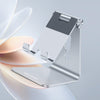

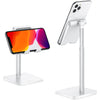
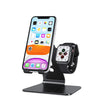
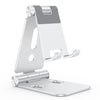

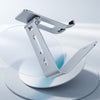

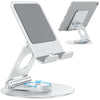
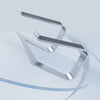
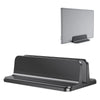
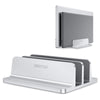
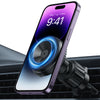
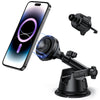
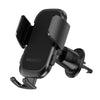

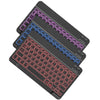

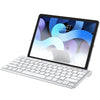
![[iOS System] Seamless KB066](http://omoton.com/cdn/shop/files/B00B24I4II-1_100x.jpg?v=1686815508)
![[Mac System] Seamless KB066](http://omoton.com/cdn/shop/files/B09899K4L6-1_c724630c-c160-4901-9900-f670acc91416_100x.jpg?v=1686732854)
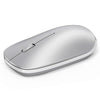
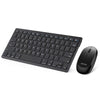
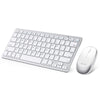
![[2 pcs] Full Protection A020-iPad Pro 11](http://omoton.com/cdn/shop/products/3a69674b6a96497b2ffd7f3025a80d58_e9954f3e-86f5-43e6-9a80-575bcfebd158_100x.jpg?v=1686381536)
![[2 pcs] Full Protection A017 - iPad 10.2 inch](http://omoton.com/cdn/shop/files/61tTSoyyuuL._AC_SL1500_100x.jpg?v=1686021560)
![[3 pcs] Rugged & Robust A013-iPhone 11/XR](http://omoton.com/cdn/shop/files/61po0_qv46L_100x.jpg?v=1686032850)
![[3 pcs] Rugged & Robust A013-iPhone 14](http://omoton.com/cdn/shop/files/16c0b02250912a03578c8b2af6825f11_100x.jpg?v=1686708163)
![[3 pcs] Rugged & Robust A036-iPhone 14 Pro](http://omoton.com/cdn/shop/files/1_2_100x.jpg?v=1686022078)
![[3 pcs] Rugged & Robust A013-iPhone 14 Pro Max](http://omoton.com/cdn/shop/files/1_2_2_100x.jpg?v=1686023071)
![[3 pcs] Rugged & Robust-iPhone 13](http://omoton.com/cdn/shop/files/71HO0AZn0BL_100x.jpg?v=1688522739)
![[3 pcs] Rugged & Robust-iPhone 13 Pro](http://omoton.com/cdn/shop/files/71pE0jfT24L._AC_SX679_100x.jpg?v=1688523892)
![[3 pcs] Rugged & Robust-iPhone 13 Pro Max](http://omoton.com/cdn/shop/files/71c1zssdVHL._AC_SX679_100x.jpg?v=1688527213)
![[3 pcs] Rugged & Robust A024-Samsung Galaxy A14](http://omoton.com/cdn/shop/files/1_2_68d89e60-61af-4cba-9867-9a91941aee01_100x.jpg?v=1686030778)













